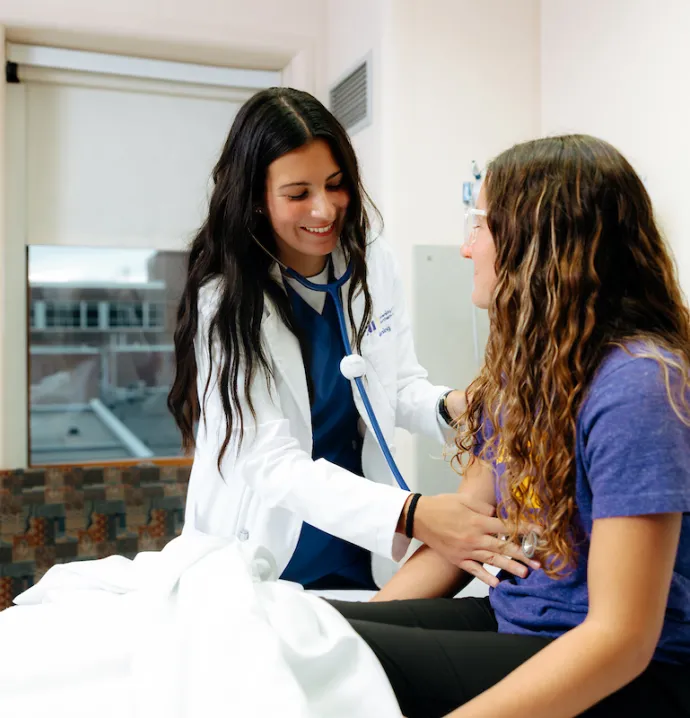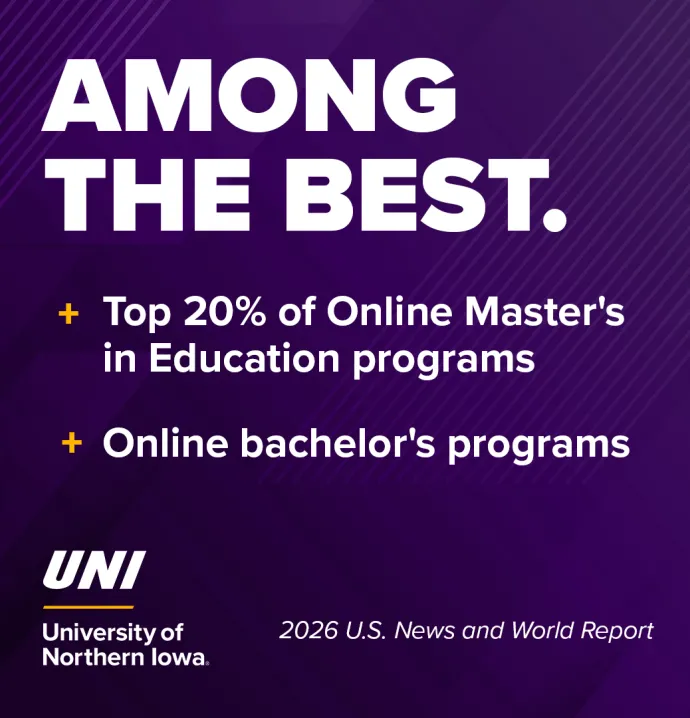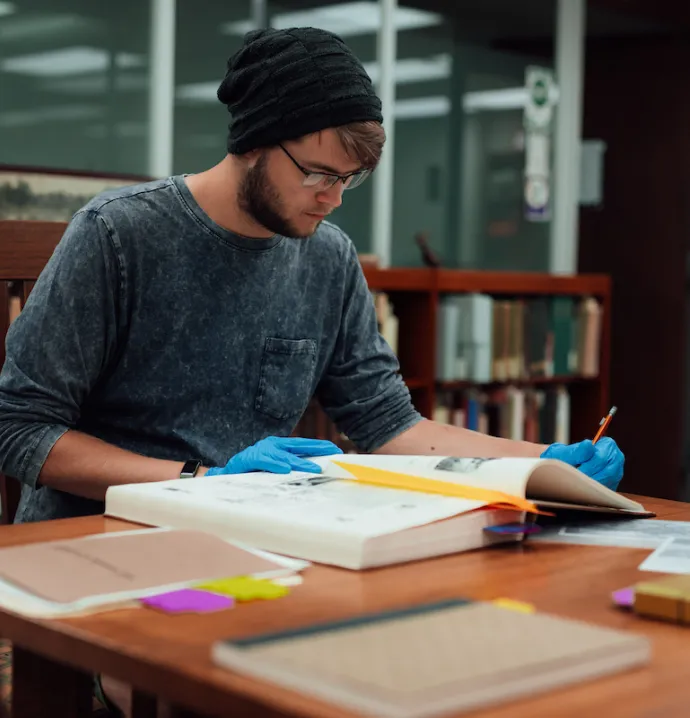Bridging the equity gap in higher education
Bridging the equity gap in higher education

If you would had asked Charles Mhoon,‘17, in high school where he’d be almost two decades later, he certainly wouldn’t have said working as an educational counselor at the University of Northern Iowa.
Mhoon, ‘16, recalls his high school principal in Mississippi telling him he’d end up in prison, not college. Halfway through his senior year, that same principal sent him to a detention center. Now, Mhoon’s job includes recruiting potential students, particularly adults over the age of 19, who may have fallen through the cracks and be unaware there are educational resources like the programs that helped him get through college himself, where he ultimately earned a master’s degree.
I’m able to view it from both sides of the coin. I know what it’s like to be the person to receive the help, as well as now give the help. It was very beneficial for me. I can understand and really empathize with the people who come to me for assistance.
After graduating from Waterloo East High School, Mhoon, a first-generation college student, attended Ellsworth Community College to follow his dream of playing college basketball. Those plans were put on pause once he learned he was going to become a father. He transferred to Hawkeye Community College with the help of UNI educational counselor Constance McGovern, ‘87.
After graduating with his associate degree, someone pointed Mhoon to UNI’s Center for Urban Education (UNI-CUE). The priority of this center is to provide educational opportunities to students who identify as first-generation and low-income and fully embraces the concept of continuing and part-time education to serve nontraditional students.
In fact, Mhoon had already benefited from UNI-CUE’s services as a student at East High School. The facility supports several federally funded TRIO programs like a few Mhoon utilized, including the Educational Talent Search, the Educational Opportunity Center (EOC) and serving as a tutor for Upward Bound.
Mhoon went on to graduate from UNI with a bachelor’s degree in psychology in 2016. He shared that he originally wanted to be a psychiatrist but knew he’d need to attend medical school, which didn’t excite him. So, he switched gears to focus on child psychology and school counseling in hopes of helping kids like him navigate their journey to college.
After graduation, Mhoon pursued that passion as a behavior intervention specialist within the Waterloo Community School District and then as a youth counselor with Bakari Behavioral Health.

In 2018, Mhoon took a role as an educational counselor within UNI-CUE — the same program that helped him get through college himself. As he works with students from all walks of life, he stresses that someone’s educational journey has nothing to do with their ability to learn.
“Sometimes in life, things may happen, and you do have to reprioritize,” he said. “I make sure to let people know that there’s nothing to be ashamed of, that you started and had to stop. That just means you took the time to get other things taken care of and now you’re back, trying to finish what you started.”
Mhoon feels that his experience at UNI, both as a student and an employee, has enabled him to grow personally and professionally.
He acknowledges colleagues like Executive Director of UNI-CUE Robert L. Smith, Jr., former director of UNI-CUE’s TRIO and EOC programs Kathy Martin, ‘83, and current EOC director Nickole Dillard, ‘96, for playing a big part in his life as well,
helping him get into spaces where he can make an even bigger impact on students’ lives while also serving as mentors. In addition, Mhoon credits the UNI-CUE’s assistant director, Bethany Botchway, for her support.
“Within the last two years, it’s become a purpose – it’s not just a job,” Mhoon said. “It’s transformed into a purpose.”




